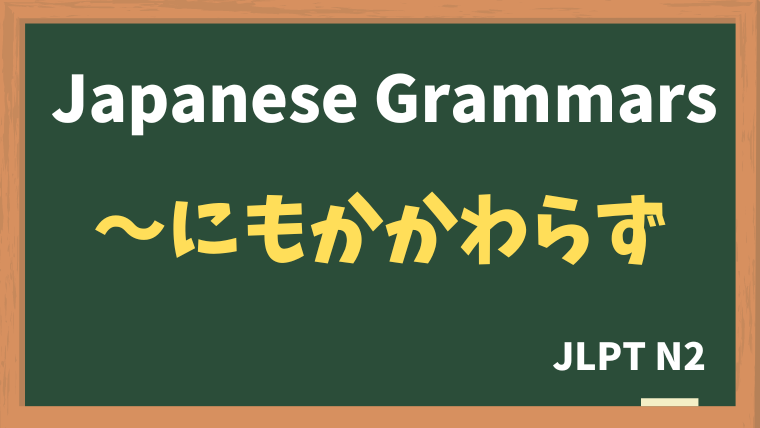
Explanation:〜にもかかわらず
fa-check-circleMeaning
”〜のに"
"in spite of"
It is used to express that something happens or is done contrary to expectations, given a certain condition or situation. This phrase is commonly used in both formal and informal contexts to highlight a contrast between the expected outcome and the actual result.
fa-check-circleForm
V(plain form)+ にもかかわらず
イA(plain form)+ にもかかわらず
ナA(plain form)+ にもかかわらず
N(plain form)+ にもかかわらず
fa-check-circlePoints
- Contrary to Expectations: "〜にもかかわらず" emphasizes that something happens despite certain conditions or obstacles.
- Unexpected Outcome: The second part of the sentence usually describes a result that contradicts what would logically follow from the first part.
- Formal and Informal Usage: It is versatile and can be used in both spoken and written language.
fa-check-circleJLPT Level
N2
Sample sentenes
彼はもう10年以上も日本に住んでいるにもかかわらず、全然日本語が話せない。
Despite having lived in Japan for over ten years, he can't speak Japanese at all.
あまり勉強していなかったにもかかわらず、テストの結果がよかった。
Despite not studying much, the test results were good.
彼女は外国人であるにもかかわらず、日本人より日本に詳しい。
Despite being a foreigner, she knows more about Japan than most Japanese people.
このカフェは「Wi-Fi」のマークがあるにもかかわらず、Wi-Fiが使えなかった。
Despite having a "Wi-Fi" sign, this café didn't have working Wi-Fi.
彼の言っていることは本当であるにもかかわらず、誰も信じようとしなかった。
Despite what he said being true, no one tried to believe him.
雨が降っているにもかかわらず、彼は外でジョギングをしている。
Despite the rain, he is jogging outside.
忙しいにもかかわらず、彼は手伝ってくれた。
Despite being busy, he helped me.
Vocabulary
| Japanese |
English | |
| 結果 | けっか | result |
| 信じる | しんじる | to believe |






